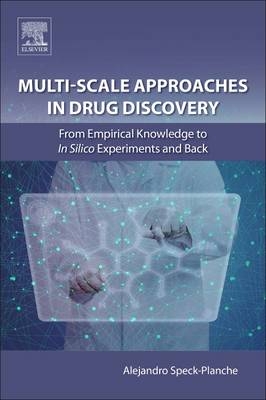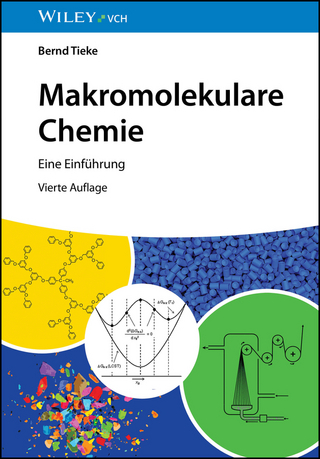
Multi-Scale Approaches in Drug Discovery
Elsevier / The Lancet (Verlag)
978-0-08-101129-4 (ISBN)
After an introduction to multi-scale approaches outlining the need for and benefits of their use, the book goes on to explore a range of useful techniques and research areas, and their potential applications to this process. Profiling drug binding by thermodynamics, machine learning for predicting enzyme sub-classes, and multitasking models for computer-aided design and virtual compound screening are discussed, before the book goes on to review Alkaloid Menispermaceae leads, natural chemotherapeutic agents and methods for speeding up the design and virtual screening of therapeutic peptides. Flavonoids as multi-target compounds are then explored, before the book concludes with a review of Quasi-SMILES as a novel tool.
Collecting together reviews and original research contributions written by leading experts in the field, Multi-Scale Approaches to Drug Discovery highlights cutting-edge approaches and practical examples of their implementation for those involved in the drug discovery process at many different levels. Using the combined knowledge of medicinal, computational, pharmaceutical and bio- chemists, it aims to support growth in the multi-scale approach to promote greater success in the development of new drugs.
Since graduating from the University of Oriente, Cuba, Alejandro has swiftly been making a name for himself as a leading expert in computational tools for multi-scale drug discovery. In the past 5 years, he has published 54 papers which have been cited in excess of 640 times, giving him a personal field-weighted citation impact of 2.19. He has collaborated with teams from around the globe, and his research interests include chemo-bioinformatics, computer-aided drug design, computational toxicology, QSPR/QSAR/QSTR, peptide discovery, antimicrobial research, anticancer research and neurodegenerative diseases.
1. Profiling Drug Binding by Thermodynamics: Key to Understanding 2. Machine Learning Approach to Predict Enzyme Subclasses 3. Multitasking Model for Computer-Aided Design and Virtual Screening of Compounds With High Anti-HIV Activity and Desirable ADMET Properties 4. Alkaloids From the Family Menispermaceae: A New Source of Compounds Selective for ß-Adrenergic Receptors 5. Natural Chemotherapeutic Agents for Cancer 6. Speeding Up the Virtual Design and Screening of Therapeutic Peptides: Simultaneous Prediction of Anticancer Activity and Cytotoxicity 7. Flavonoids From Asteraceae as Multitarget Source of Compounds Against Protozoal Diseases 8. Quasi-SMILES as a Novel Tool for Prediction of Nanomaterials' Endpoints
| Erscheinungsdatum | 07.03.2017 |
|---|---|
| Verlagsort | London |
| Sprache | englisch |
| Maße | 152 x 229 mm |
| Gewicht | 390 g |
| Themenwelt | Naturwissenschaften ► Chemie ► Organische Chemie |
| ISBN-10 | 0-08-101129-6 / 0081011296 |
| ISBN-13 | 978-0-08-101129-4 / 9780081011294 |
| Zustand | Neuware |
| Haben Sie eine Frage zum Produkt? |
aus dem Bereich


